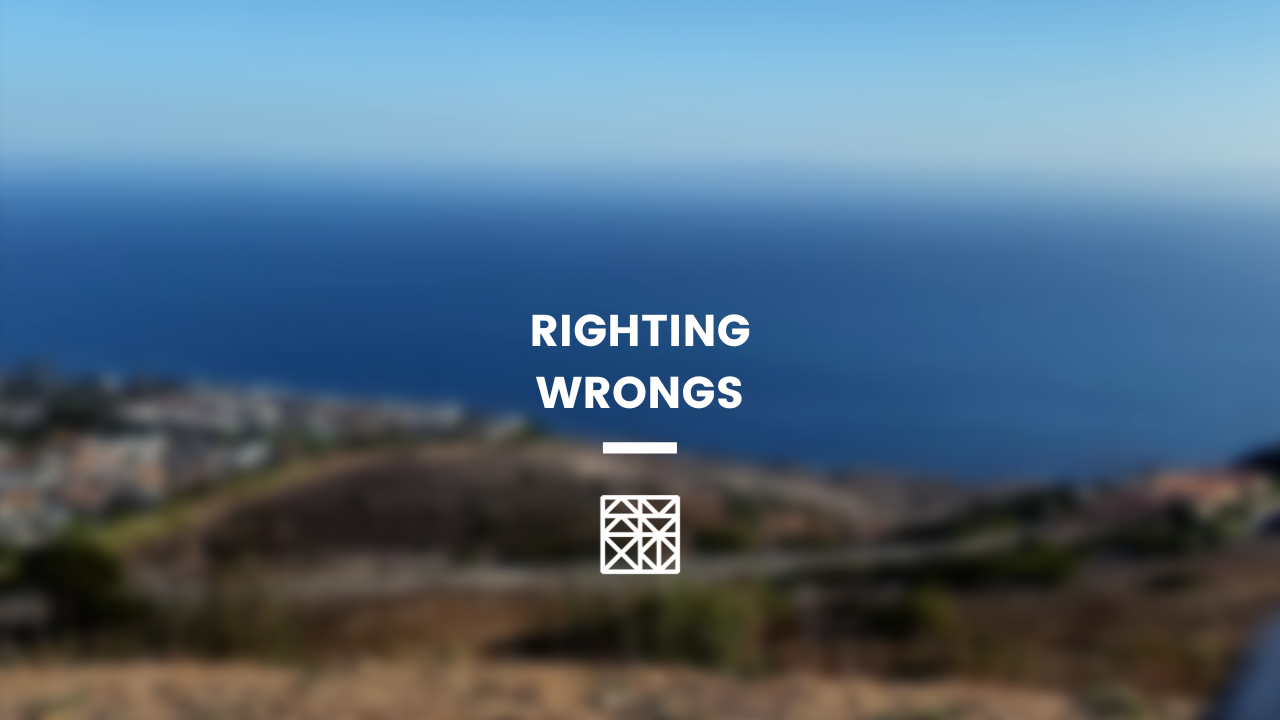2 SAMUEL 21 - RIGHTING WRONGS
2 Samuel 21
During the reign of King David, the land of Israel experienced three consecutive years of famine. As each year passed it became more apparent that there was spiritual cause for the famine. David inquired of the Lord, and God revealed that the famine was judgement for how King Saul mistreated the Gibeonites. The Gibeonites were a people group that Israel had vowed to protect by letting them live in the land of Israel, but Saul had many of them killed (v. 1-2).
David called a meeting with the Gibeonites to make things right before the Lord. The Gibeonites showed mercy by not demanding greater vindication. They understood that the brutality against them was past sin from a past leader. They didn’t want money, they didn’t want land, and they didn’t want war. However, they did want proper justice for their slain people. Therefore, the Gibeonites asked for seven sons of Saul be put to death to satisfy judgment for their bloodguilt. David agreed to give them over to be judged (v. 3-6).
David selected the seven sons of Saul to be delivered up. David spared Jonathan’s son Miphiboseth because of a promise of protection that was previously made. The King was wise to not fix a broken promise by breaking another promise. The Gibeonites took the seven sons of Saul and put them to death by hanging them on a mountaintop. Their deaths are another reminder of God’s judgement that had come upon the house of Saul. The sins of Saul had ripple effects for generations. And although we don’t know about the lives or personal sins of those seven sons, we can be confident that they were we not innocent in the matter. In some way each son had partaken in the bloodguilt of the Gibeonites, and they were judged for it (v. 7-9).
The death of the seven sons of Saul happened at the beginning of the harvest, and it brought an end to the famine. David gave Saul’s sons a proper burial together with the bones of Saul and Jonathan. This proper burial is a reminder of what David still believed about Saul’s household. David believed that God had anointed Saul and that he had been used for God’s purposes, therefore he honored them after death. David was glad, however, that the sins of Saul would not continuing to hinder the kingdom any longer. David’s commitment and command to right a wrong is another reason that God was pleased to bless Israel under David’s leadership (v. 10-14)
Shortly after this a war broke out with the Philistines, Israel’s long-standing enemy. David entered the fight, but he became weary in battle. The King was almost killed by a Philistine giant, but he was rescued by a one of his mighty men. David’s commanders all agreed that it was time for the King to retire from war. They said, “You shall no longer go out with us to battle, lest you quench the lamp of Israel.” David’s wise and good leadership was needed in Israel. Even after David retired, his men kept fighting and winning battles against the giants - even against a giant that had six fingers and six toes (v. 15-22)
David was indeed a lamp to Israel. He exposed darkness and brought light into the kingdom. He sought to bring forth God’s blessing by leading Israel in obedience to the Lord. From the first giant he slayed as a young boy to the giants of his old age, David was a warrior for the Lord and for God’s people. He was a man after God’s heart. David sought to bring justice to the oppressed and protection to the vulnerable. The King had his own mistakes and weaknesses in life, but he was a man who always sought to walk the well-lit path of God. For this reason, he was called the lamp of Israel.
Still, there was a brighter lamp that needed to come. One that would right every wrong. Jesus, the true lamp of Israel, took the place of our bloodguilt when on a mountaintop he hung on a tree and took the curse of sin once and for all. Jesus offers an even greater mercy than the Gibeonites did. Jesus satisfied the judgement of God in a way that no other death could.

